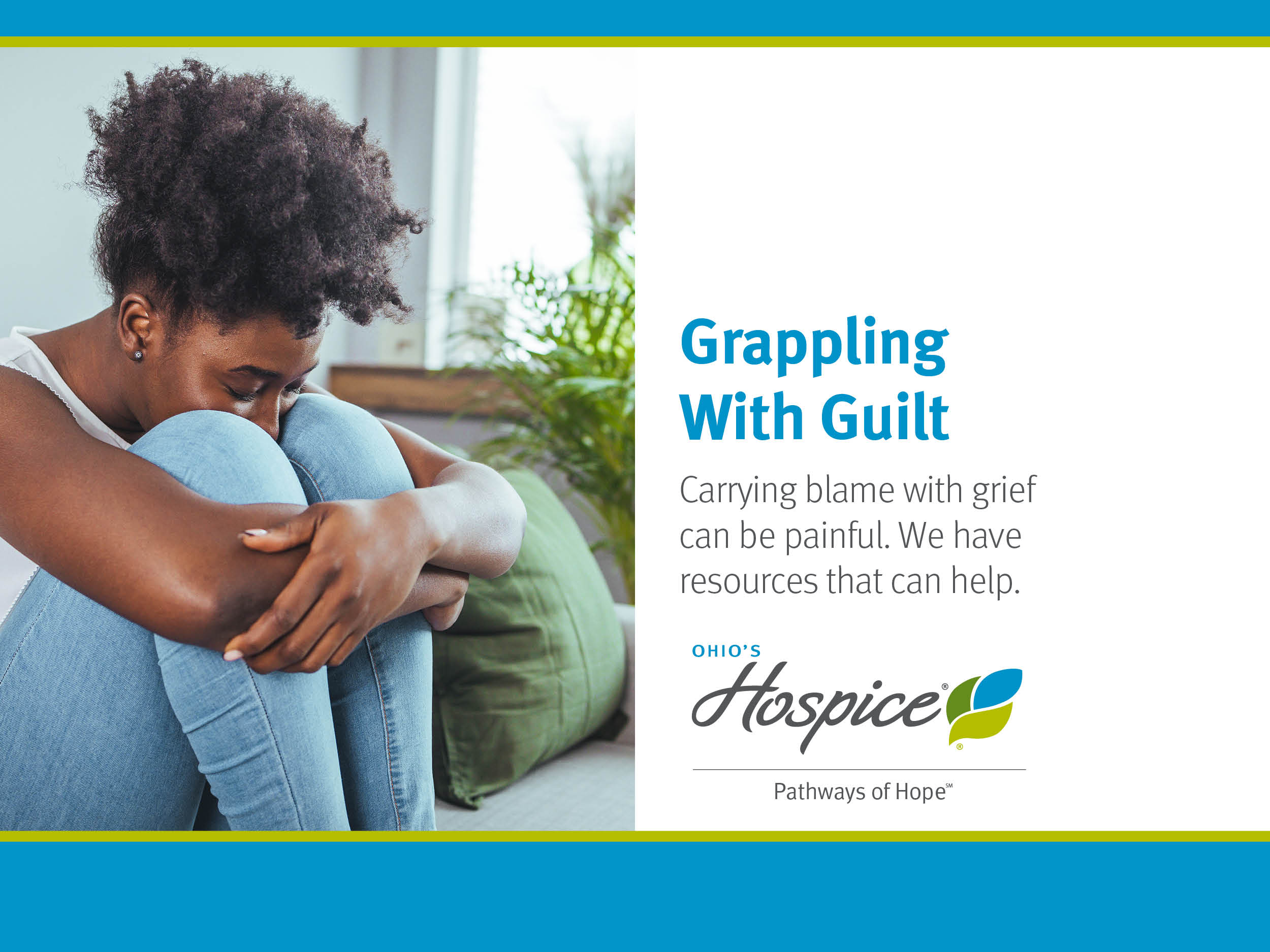Grappling With Guilt
Guilt can be one of the most painful aspects of grief. Carrying guilt along with grief is like adding cumbersome boulders to the already heavy load that one carries after the loss of a loved one.

Grieving minds might play mind games, obsessively running on a treadmill of self-blaming thoughts:
- If only I had seen the signs of illness earlier.
- If only I had spent more time with her.
- If only I had insisted on seeking different treatment.
- I should have been able to care for my loved one at home.
- I should have been with him when he died.
These types of guilt-producing statements are exhausting and disheartening. Even more seriously, failing to deal with guilt properly may lead to a complicated or blocked grieving process.
Realizing that there is a difference between guilt and regret may prove helpful to the griever. Nearly all grieving individuals suffer regret or wish things could have been done differently. Regrets are normal and do not imply that someone has done something wrong. They indicate a wish made in hindsight that the person would have made a different choice. Regrets usually lead to sadness and permit the griever to state, “I did my best.” Guilt, by contrast, implies wrong-doing and must be addressed.
Try “talking back” to the guilt. This technique can be very helpful. Consistently making reassuring statements to yourself, such as “I did my best,” is uplifting. Changing the wording of “If only” and “I should have” statements to “I wish I had” statements such as, “I wish I had spent more time with my loved one.” This removes the element of blame and moves guilt to the healthier emotion of regret.
If you continue to struggle with guilt, it may be helpful to talk to one of the trained bereavement counselors at Pathways of Hope. Learning to let go of guilt can be a freeing process!

